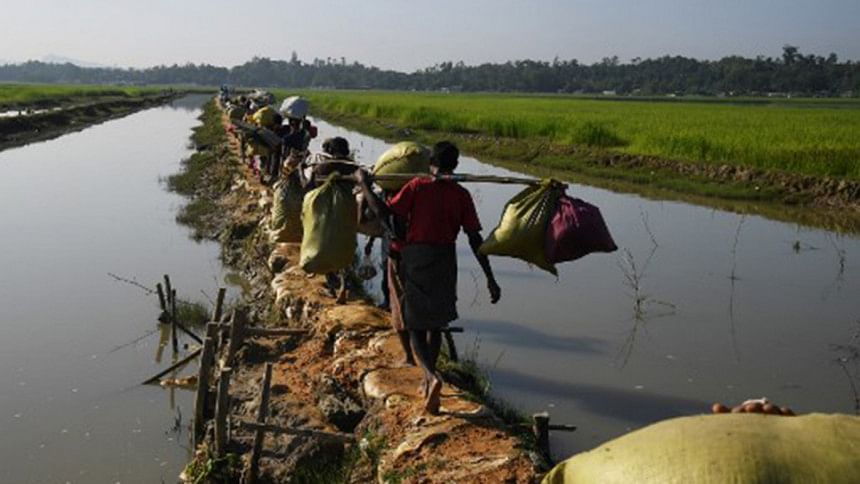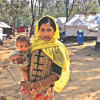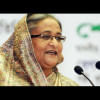'Humanitarian needs of Rohingyas rise'

As displacement continues, the humanitarian and protection needs of the Rohingya also rise, said UN Migration Agency IOM in its latest report.
"New arrivals are living in spontaneous settlements with increasing need of humanitarian assistance, including shelter, food, clean water, and sanitation. Poor road networks and insufficient drainage in the displacement sites make it difficult to reach new arrivals with urgent support," it said.
The report also stated that IOM and the humanitarian community are scaling up operations to respond to the needs of new arrivals, existing Rohingya, and affected host communities.
Since 25 August 2017, an estimated 607,000 Rohingya have crossed into Bangladesh fleeing violence in Myanmar's Rakhine State, increasing the total Rohingya population in Cox's Bazar to 820,000.
The IOM report on Rohingya Crisis Response, said that Rohingya women, children remain most at risk and require specialist care and attention.
IOM health teams have provided emergency and primary healthcare services to 61,000 patients and continue to provide emergency health services to new Rohingya arrivals. The team has set up child delivery facilities and a patient stabilization unit in Kutupalong.
Since 25 August IOM is supporting over 38,000 vulnerable individuals including having provided over 2,000 people with psychological first aid (PFA), referred 1,000 people to health services for specialist care services and providing 2,100 dignity kits and 3,000 solar lanterns distributed to vulnerable women.
An average 500 Rohingya are using the Emergency Information Services per day, said the UN Migration Agency.
According to the report, 741,000 litres of water have been trucked into spontaneous settlements with limited access to water to support SPHERE standards.
Over 35,000 individuals have received hygiene kit distributions. 800 emergency latrines have been constructed and 100 mobile toilets have been installed to date which has supported 40,000 individuals. Fourteen deep tube wells have been completed, it added.
To date, IOM has distributed 102,000 tarpaulins which have benefited 461,000 new arrivals. 32,000 individuals have also received NFI distributions.
Over the last 48 hours, some 4,000 Rohingyas crossed into Bangladesh from Myanmar at the Anjumanpara border crossing point, said the IOM on Friday.

 For all latest news, follow The Daily Star's Google News channel.
For all latest news, follow The Daily Star's Google News channel. 





Comments